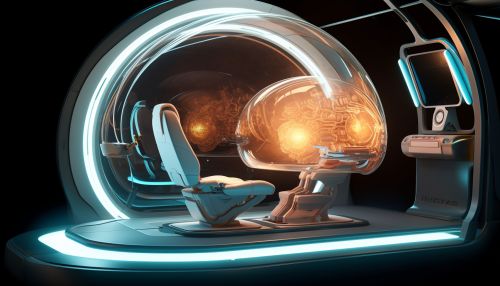Psychiatry
Definition and Overview
Psychiatry is a branch of medicine that focuses on the diagnosis, treatment, and prevention of mental, emotional, and behavioral disorders. A psychiatrist is a medical doctor who specializes in mental health, including substance use disorders. Psychiatrists are qualified to assess both the mental and physical aspects of psychological problems1(https://www.psychiatry.org/patients-families/what-is-psychiatry).


History of Psychiatry
The history of psychiatry reflects changing attitudes to mental illness, and the evolution of different approaches to diagnosis and treatment. From the ancient belief in demonic possession, through the development of asylums and the moral treatment movement, to the modern era of psychopharmacology and psychotherapy, the history of psychiatry is a story of constant change and adaptation2(https://www.ncbi.nlm.nih.gov/books/NBK207191/).


Branches of Psychiatry
Psychiatry has several sub-specialties, including child and adolescent psychiatry, geriatric psychiatry, forensic psychiatry, addiction psychiatry, and neuropsychiatry. Each of these branches deals with specific populations (e.g., children, the elderly) or specific issues (e.g., legal matters, substance abuse) within the broader field of mental health3(https://www.ncbi.nlm.nih.gov/books/NBK519712/).


Diagnosis in Psychiatry
Psychiatric diagnosis involves the assessment of symptoms and signs of mental disorders. Psychiatrists use a variety of techniques, including psychiatric interviews, physical examinations, and psychological testing. The most commonly used diagnostic guidelines are the Diagnostic and Statistical Manual of Mental Disorders (DSM) and the International Classification of Diseases (ICD)4(https://www.ncbi.nlm.nih.gov/books/NBK519704/).


Treatment in Psychiatry
Psychiatric treatment involves a combination of psychotherapy, medication, psychosocial interventions, and other treatments (such as electroconvulsive therapy in severe cases). The choice of treatment depends on the diagnosis, the severity of the disorder, and the individual patient's needs and preferences5(https://www.ncbi.nlm.nih.gov/books/NBK361016/).


Psychiatry and Society
Psychiatry has a significant impact on society, as mental health issues are prevalent and can have serious consequences for individuals and communities. The field also faces various ethical, legal, and social issues, such as the rights of patients, the use of involuntary treatment, and the stigma associated with mental illness6(https://www.ncbi.nlm.nih.gov/books/NBK361016/).


Future of Psychiatry
The future of psychiatry is likely to be shaped by advances in neuroscience, genetics, and digital technology. These developments may lead to more precise diagnoses, more effective treatments, and better ways of delivering mental health services. However, they also raise new ethical and practical challenges7(https://www.ncbi.nlm.nih.gov/books/NBK361016/).


See Also
References
1. What is Psychiatry? - American Psychiatric Association 2. History of Psychiatry - National Center for Biotechnology Information 3. Branches of Psychiatry - National Center for Biotechnology Information 4. Diagnosis in Psychiatry - National Center for Biotechnology Information 5. Treatment in Psychiatry - National Center for Biotechnology Information 6. Psychiatry and Society - National Center for Biotechnology Information 7. Future of Psychiatry - National Center for Biotechnology Information
